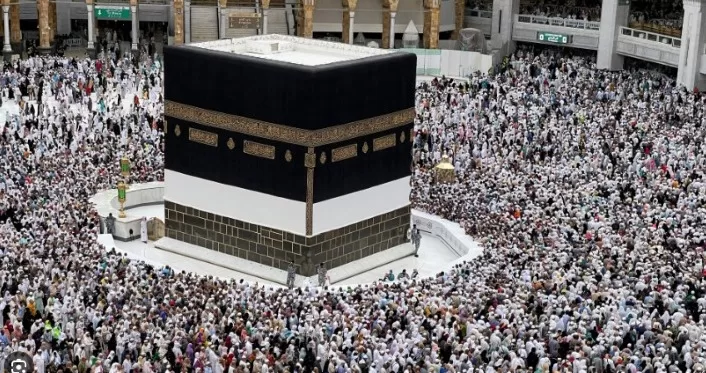At least 550 people have died on the Hajj pilgrimage.
Three hundred and twenty-three of the dead were Egyptians, most of whom perished due to heat-related illness, AFP reported, citing two Arab diplomats.
In addition, 35 Tunisian citizens have died, Tunisian news agency Tunis Afrique Presse said.
Stampedes, tent fires and other accidents have caused hundreds of deaths during Hajj in the past 30 years. This year’s pilgrimage began on Friday.
Saudi state TV said temperatures rose on Monday as high as 51.8 degrees in the shade at the Grand Mosque in Mecca.
A 2019 study by Geophysical Research Letters said that as temperatures rise in arid Saudi Arabia due to climate change, pilgrims performing the Hajj will face “extreme danger”.
Many of those deaths were due to extreme heat, family members said on social media, as other families continued to search for missing relatives in Saudi hospitals.
The Jordanian foreign ministry said it had issued 41 burial permits for Jordanian pilgrims, while 11 Iranians died and 24 were hospitalised during the pilgrimage, Iranian state news outlet IRINN said on Tuesday.
Three Senegalese citizens also died during Hajj, Agence de Presse Sénégalaise said, while 144 Indonesian citizens died during the pilgrimage, Indonesian health ministry data showed on Tuesday. The data did not specify if any of the deaths were due to heat stroke.
The Hajj is an annual pilgrimage that millions of Muslims make to Mecca to perform religious rites as taught by the Prophet Mohammad to his followers 14 centuries ago.
A Saudi health official, speaking before many of the reports of deaths were issued, said that authorities had not noticed any unusual fatalities among Muslim pilgrims amid the extremely high temperatures.
The ministry had so far treated more than 2700 pilgrims who suffered from heat-related illness, he added.
“Hajj is a difficult task, so you have to exert efforts and perform the rituals even in the conditions of heat and crowding,” an Egyptian pilgrim said on Sunday.
Pilgrims used umbrellas to protect themselves from the sun, as Saudi authorities warned pilgrims to stay hydrated and avoid being outdoors during the hottest hours between 11am and 3pm.
Hajj, one of the largest mass gatherings in the world, is a once-in-a-lifetime duty for able-bodied Muslims who can afford it. It will end on Wednesday.
More than 1.8 million pilgrims were expected to take part this year, according to the Saudi General Authority for Statistics.


